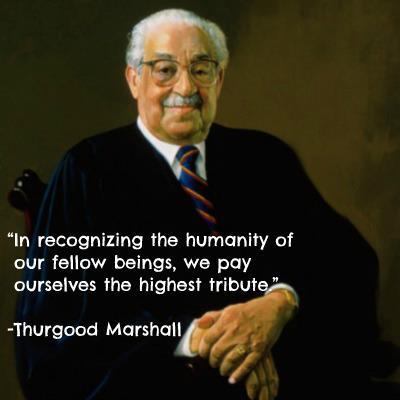Text
Tags Masterpost
You can use these tags in the search bar to find exactly what you're looking for!
american revolutionary self post: any post I created myself and did not reblog from another tumblr user
application of theory: anything to do with servant leadership
servant leadership strengths
servant leadership limitations
theory in practice:Thurgood Marshall's demonstration of servant leadership
leading in today's society: example of how issues in the book apply to leading in our society today
behavior change: recommendation on how Marshall could have behaved differently based on servant leadership
summary of book
concluding thoughts: what I gained from the book/application of theory
maggie's mid-read comments: my rants and/or comments I posted while reading the book
juan williams: posts that reference content directly from the book
thurgood marshall: anything pertaining directly to Marshall
quote: cool quotes I found
did you know?: cool trivia facts about Marshall
0 notes
Text
Concluding Thoughts
How to share all I learned from reading this biography and examining it with servant leadership in mind? Surprisingly, I actually enjoyed Juan Williams' work despite my aversion to non-fiction. He included many humorous details of Marshall's life that served as comic relief from the dry details of court cases and politics.
I found a new appreciation for the court system because of Marshall's view that he was the one truly making a change in America through arguing cases. Dr. Martin Luther King and Malcolm X stirred the emotions of people to help them accept race, but Marshall was the one who fought for laws that would make it illegal to turn away people based on their race.
Servant leadership consistently addresses followers and how leaders should act towards them. To wrap up what I gained from the book and the applied theory, Marshall says it better than I ever could.
"In recognizing the humanity of our fellow beings, we pay ourselves the highest tribute."
--Thurgood Marshall
1 note
·
View note
Text
Summary of Book
Thurgood Marshall: American Revolutionary by Juan Williams is probably one of the most interesting and well-written biographies I have read. Not that I've read a lot of biographies, but I recognize good writing when I see it. Williams doesn't hide Marshall's flaws or make excuses for his mistakes. He lays it all on the table for people to make their own judgements of his character and work. A quote at the beginning of the book sums up Williams' work very well:
"We make movies about Malcolm X, we get a holiday to honor Dr. Martin Luther King, but every day we live with the legacy of Justice Thurgood Marshall."
-Washington Afro-American editorial after Thurgood Marshall's death
1 note
·
View note
Photo
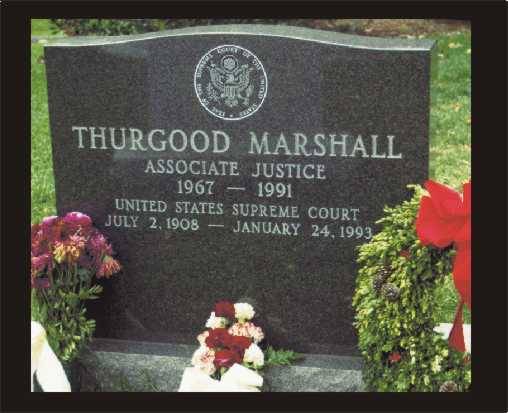
January 24th, 1993, at 84 years old, Thurgood Marshall died. He was buried in Arlington National Cemetery. All of his personal papers and notes from his time as a Supreme Court Justice were left to the Library of Congress and made public upon his death.
#american revolutionary self post#thurgood marshall#r.i.p#source: http://www.foodservicerumors.com/rich_and_famous_13.htm
0 notes
Photo
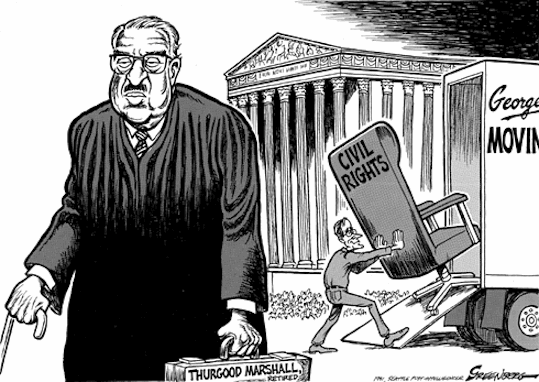
On this date, June 27, in 1991, U.S. Supreme Court Justice Thurgood Marshall announced his retirement.
Born on July 2, 1908, in Baltimore, Maryland, Thurgood Marshall studied law at Howard University. As counsel to the NAACP, he utilized the judiciary to champion equality for African Americans. In 1954, he won the Brown v. Board of Education case, in which the Supreme Court ended racial segregation in public schools. Marshall was appointed to the Supreme Court in 1967, and served for 24 years. He died in Maryland on January 24, 1993. [Continue reading biography.]
166 notes
·
View notes
Quote
"What you have to do--white or black--you have to recognize that you have certain feelings about the other race, good or bad. And then get rid of 'em. But you can't get rid of them until you recognize them."
--Thurgood Marshall
2 notes
·
View notes
Conversation
During a 1982 oral argument on a death penalty case...
Justice Rehnquist: "Would it not be cheaper to execute a young convict than to pay to feed and jail him for a lifetime?"
Justice Marshall: "Well, it would have been cheaper just to shoot him right after he was arrested, wouldn't it?"
#american revolutionary self post#thurgood marshall#maggie's mid-read comments#juan williams#william rehnquist
1 note
·
View note
Text
Remember the college I talked about way earlier that Marshall considered attending but decided against it because of its segregation policy? Well, the dean of the University of Maryland came to Marshall in 1980 and asked him to come to the dedication of their new law library, which they had named in his honor. Marshall refused to go by saying that he had no place there in his youth and wanted nothing to do with it now.
#american revolutionary self post#maggie's mid-read comments#I understand where he's coming from because the college was ardently segregated for a long time#but they're tring to make it right and he refuses to see that
1 note
·
View note
Photo
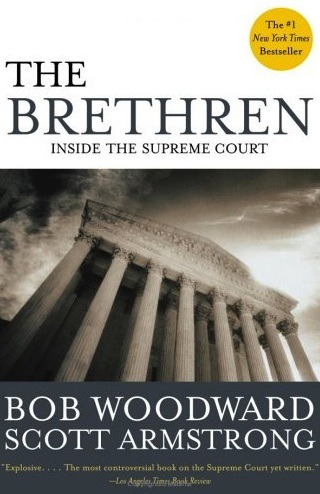
In 1979, The Brethren was released by Bob Woodward and Scott Armstrong. It looked behind the scenes at the Supreme Court justices including Marshall. Marshall was highly offended by the slanderous way they talked about him and his "laziness and inattention" to work. Juan Williams commented that "the book was not inaccurate in its reporting, but it was limited" (Williams 371).
#american revolutionary self post#juan williams#the brethren#source: http://en.wikipedia.org/wiki/The_Brethren_%28non-fiction%29
1 note
·
View note
Text
Recommendation on Behavior Change
Marshall had a tough time in the Supreme Court when many of the more liberal justices were replaced by hardline conservatives. His voice was becoming less and less heard, and there was very little he could do about it. His health was also rapidly deteriorating because of his heavy smoking and drinking habit. Marshall began to withdraw from others who disagreed with him. He felt cut off from the conservative judges, and his ego was never more fragile. The slightest insult to his character or work would put him in a very disagreeable mood.
At times like these, servant leadership is tossed aside and forgotten. Who wants to help others when everyone seems to have turned their backs on you? I think it's still important to help others and try to be there for them even if they aren't there for you. Marshall should have remembered to be vulnerable. Understanding his emotions and knowing when to let them show and when to hold them back might have made the rest of his stay on the Supreme Court much better. His anger came out fierce and quick on occasion. Working to keep that in check would have improved his public image greatly, which was what he wanted. Above all else, it would have shown to the rest of the justices how dedicated Marshall was to the job and to helping them reach the best decision possible in each case.
1 note
·
View note
Photo


In 1970, the case Roe v. Wade was appealed before the Supreme Court to secure a woman's right to an abortion. Marshall was sympathetic to the pro-choice side and influenced Harry Blackmun, the justice assigned to write the decision, to extend the abortion limit to when a fetus had "viability" outside the mother's body. The decision was officially passed in 1973.
#american revolutionary self post#roe v. wade#source: http://ceciliayu.com/2012/10/25/free-e-transcript-roe-wade/#source: http://thewordonpolitics.com/on-another-anniversary-of-roe-v-wade-four-issues-to-consider1/
1 note
·
View note
Photo

President Ronald Reagan and the members of the U.S. Supreme Court
#american revolutionary self post#thurgood marshall#he's on the far left#source: http://www.bagnewsnotes.com/2010/04/your-turn-the-stevens-era/
0 notes
Text
This was a funny quote from Thurgood's wife, Cissy, I found. "The boys" refer to Marshall and Cissy's sons.
"When the boys came along, [Marshall] said, 'I am not ever going to punish them for something that I did in my lifetime'...So he never punished them because he had done everything" (Williams 345).
-Cissy Marshall
1 note
·
View note
Text
"It takes no courage to get in the back of a crowd and throw a rock. Rather, it takes courage to stand up on your own two feet and look anyone straight in the eye and say, 'I will not be beaten.'"
-Thurgood Marshall
5 notes
·
View notes
Photo

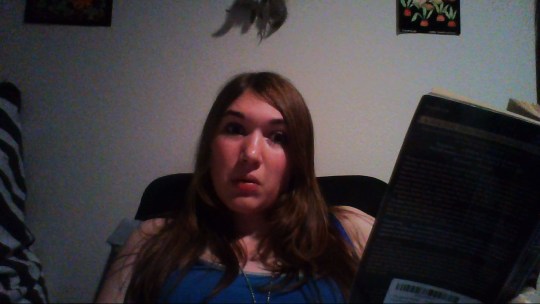
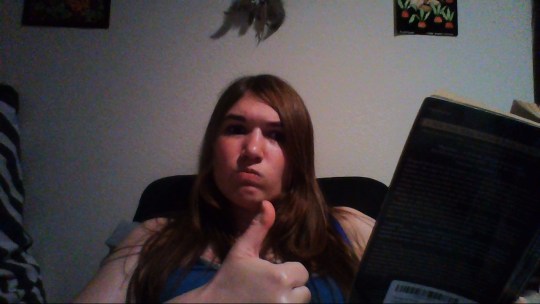
#I lied#I procastinated more#now I swear I'm going back to reading#maggie's mid-distraction comments
0 notes
Text
Whoops, got distracted by random pics and quotes while scrolling through the Thurgood Marshall tag. I'll get back to reading now...
#american revolutionary self post#maggie's mid-read comments#i guess it's not mid-read right now...#maggie's mid-distraction comments#more accurate
0 notes
